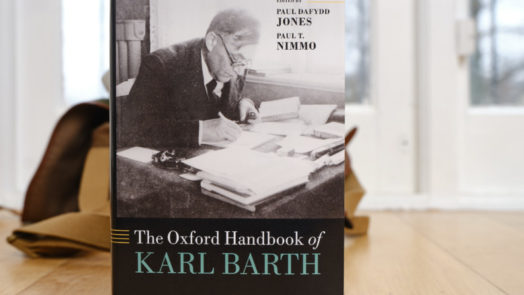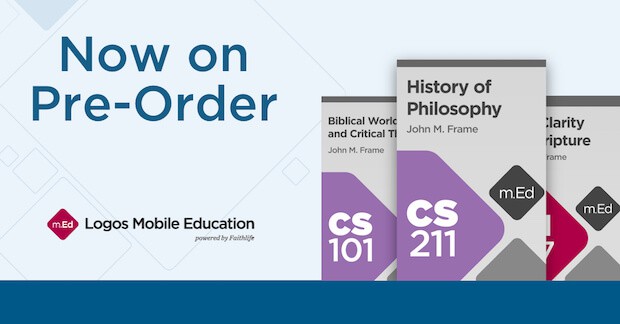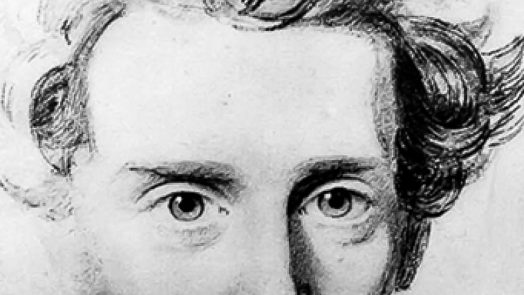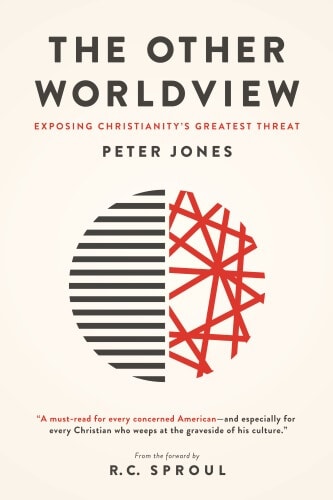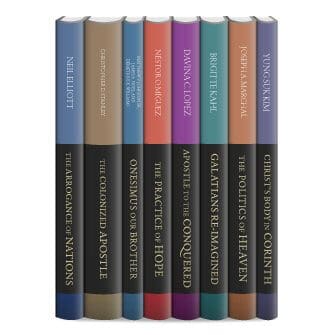In this transcript excerpt adapted from the Mobile Ed video course Biblical Worldview and Critical Thinking, esteemed Christian theologian and philosopher John Frame explores what it means to have a Christian worldview. *** My definition of...
Christopher Croom | Columbia International University Pilate said to Him, “What is truth?” (John 18:38) Introduction This famous portion of Scripture that has been rendered as a standalone verse is directly related to the crucifixion scene of...
"While the Handbook is hardly a substitute for the real thing, Barth is a fairly intimidating author."
This post is authored by John M. Frame, a philosopher and theologian especially noted for his work in epistemology, presuppositional apologetics, systematic theology, and ethics. *** Over the last fifty years, I have taught theology and have written...
Editor’s Note: We recently invited Dr. Mark Tietjen to contribute a series of articles on Søren Kierkegaard, to celebrate the soon-to-be released 26-volume Kierkegaard’s Writings on the Logos Digital Library. This is a monumental...
For over 500 years, Oxford University Press has published authoritative works by the world’s leading scholars. With the five-volume Oxford Humanities Reference Collection, you can incorporate that renowned scholarship into your study. And if you pre...
According to Peter Jones, our culture as a whole has switched worldviews over the past few decades. Rather than maintaining a fundamental distinction between God and his creation, today’s predominate worldview sees everything as essentially one. In...
We’ve recently expanded and compiled three new series—and until April 2, you can take more than 33% off each of these collections! Get commentaries on Paul’s letters to the Thessalonians, critical studies on Paul’s writings, and introductions to the...
Logos’ Pre-Publication program gets the titles you want into Logos, while also giving you the best discounts on those resources. Currently, there are dozens of valuable Bible reference works from Eerdmans available on Pre-Pub. You can get up...
Truth. Sometimes it seems like philosophy has given up on the concept. Postmodernism tends to treat it as relative; poststructuralism tends to treat it as an attribute of language, not reality. That’s why it’s so refreshing to read a...
Scholars have a name for the West’s interconnected canon of philosophy, history, and literature: the Great Conversation. It’s an enormous, fascinating body of work, and it’s reflected in an enormous, fascinating library: The 124-volume Classical...
People talk about philosophy in terms of “or.” Philosophy or faith. Philosophy or literature. Philosophy or science, as if the mind were incapable of doing both and reaching its own conclusions. But that position is ahistorical—great thinkers...
“You can never reach another physical location: to get there, you have to cross half the intervening distance; next, you have to cross half the distance that remains; next, half again—no matter how far you go, half the remaining distance remains.”...
When it comes to philosophy, nearly everyone’s heard of Immanuel Kant—and for good reason. Kant resolved a century-long gridlock between the rationalists and the empiricists by proposing a new way of thinking about how we come to know anything at...
The rationalists relied on reason, not sensory experience, to explain the world. In turn, the empiricists—John Locke, George Berkeley, and David Hume—argued that knowledge comes from experience, not pure reason. Taken as far as logic allows, that...
For many philosophers, God’s existence resolves otherwise unsolvable puzzles. The great rationalists—René Descartes, Baruch Spinoza, and Gottfried Leibniz—argued that knowledge comes not from the senses, but from reason and innate ideas. From there...



